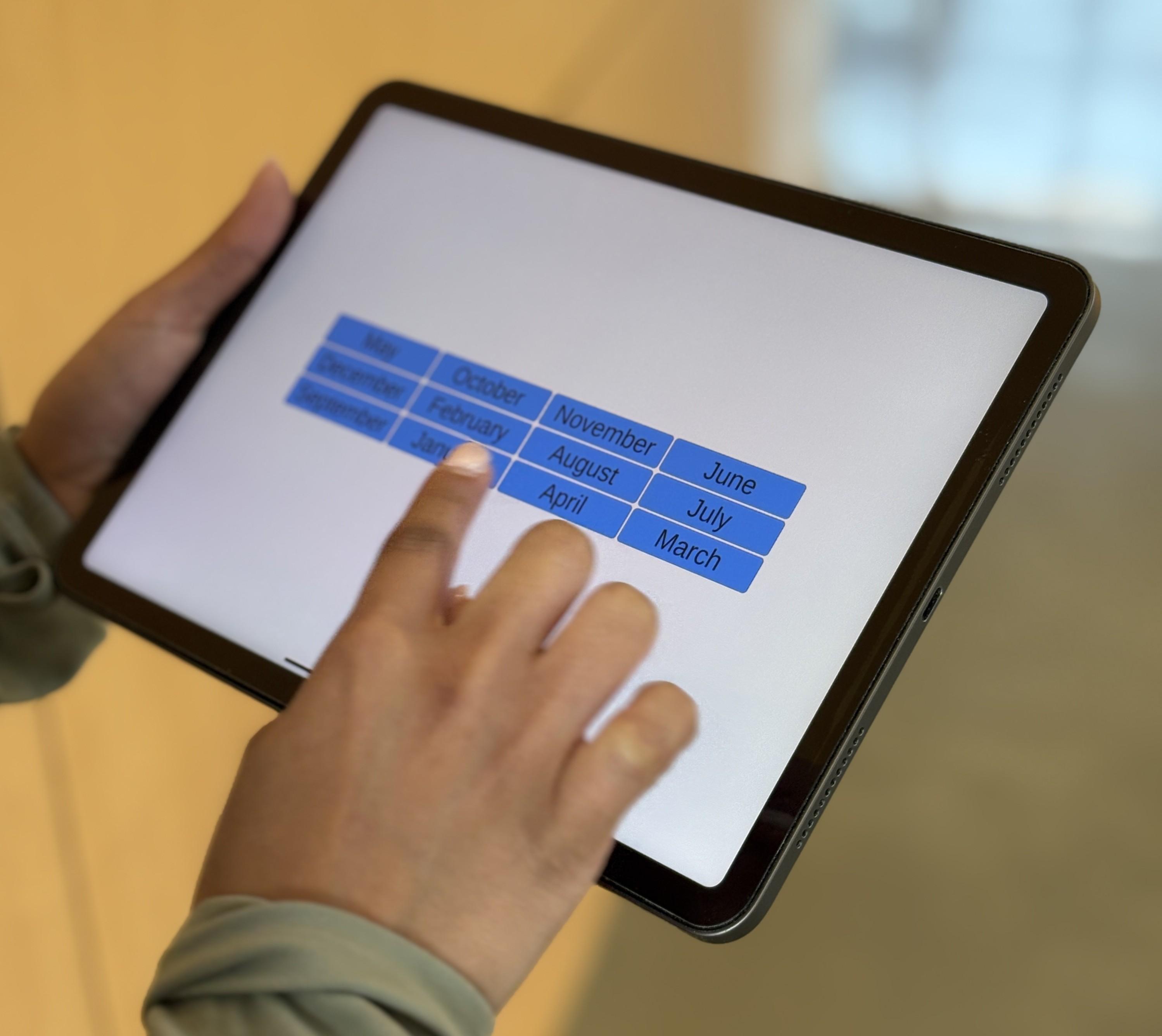Project Description:
Delirium, a frequently misdiagnosed condition affecting up to 35% of hospitalized patients, is associated with increased risks of cognitive decline, extended hospital stays, and mortality. Standard delirium assessments are given manually, take considerable time and resources, and do not quantify cognitive fluctuations, a key indicator of delirium. This project aims to develop a rapid, digital cognitive assessment tool optimized for frequent and standardized use in clinical settings. Our tablet-based application measures patient performance in key cognitive domains, including attention, orientation, and sequence memory through short, interactive tasks. In early testing with non-delirious participants, the tool demonstrated competitive completion times (1 minute 33 seconds) compared to the 3D-CAM (1 minute 54 seconds), alongside promising sensitivity in detecting cognitive changes. Key design features, including quantitative scoring, audio guidance, and an accessible user interface, were implemented based on user and clinician feedback. While initial testing has shown encouraging outcomes, further validation in clinically relevant populations is underway. Ethically, this tool promotes equitable cognitive assessment by being accessible, non-invasive, and easy to administer across diverse patient populations. Ultimately, our solution aims to provide clinicians with a quantitative and robust tool to facilitate delirium detection, increase efficiency, and improve clinical outcomes for vulnerable patients.
